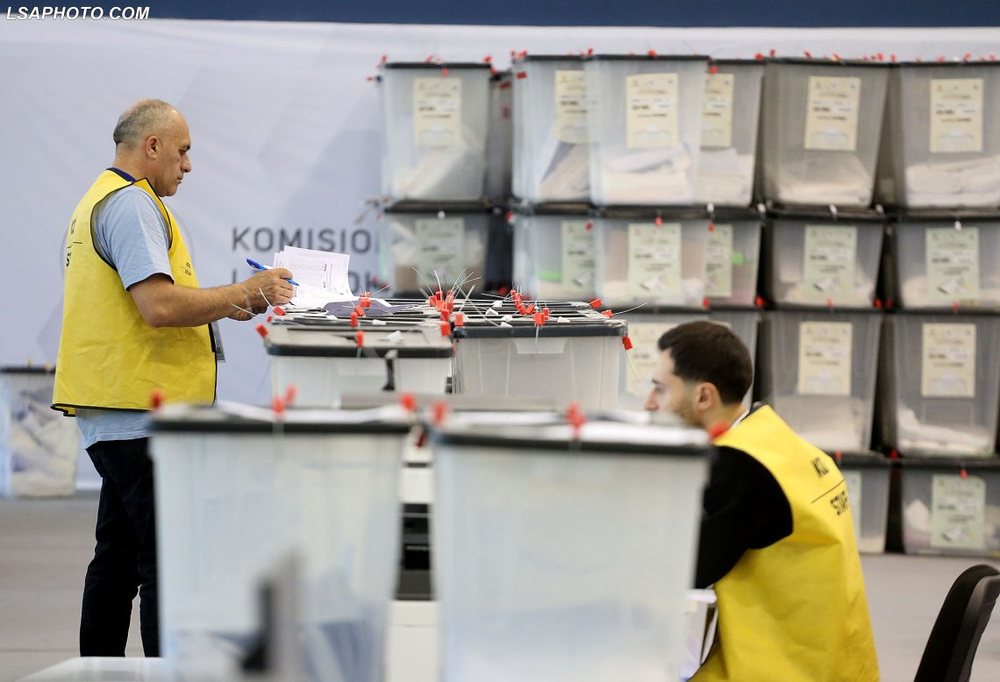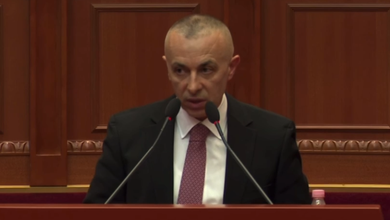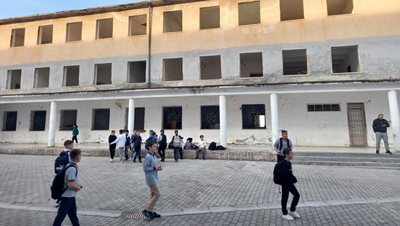
The manipulation of preferential votes in the Fier region, which was discovered after a recount process in early July, risks remaining unpunished. The findings led to the change of a deputy's mandate within the Socialist Party list, but were not followed up with investigations by the Prosecutor's Office.
Asked by BIRN whether there were any investigations into the case, the Fier Prosecutor's Office gave an evasive answer, confirming that no proceedings have yet been initiated.
"The Prosecutor's Office at the First Instance Court of General Jurisdiction in Fier is in the process of verification and correspondence with the CEC," the official response states, without specifying the nature of the verifications or whether a criminal proceeding for manipulation of the result has been registered.
The CEC did not respond to BIRN's question about the case, nor whether it had referred the counters to the prosecutor's office, as has been done in similar cases. When asked about the case, opposition MPs also declined to comment.
For experts monitoring electoral processes, the silence of institutions and political parties is not a coincidence, but evidence of impunity and political agreements that amnesty the manipulators, part of their structures.
"In a democracy that seeks to join the European Union, it is an ethical necessity for institutions to implement the law and apply the same standards. And the concrete case should be a model," said Afrim Krasniqi, director of the Institute of Political Studies.
Protection of party counters
In the parliamentary elections of May 11, the Socialist Party won a historic victory in the Fier region with 12 mandates out of a total of 16. But the result was clouded by the discovery of a vote-swapping scheme between candidates from each party during the recount process.
The most flagrant case was that of Deputy Minister Ceno Klosi, who received 813 more votes than he actually received. Likewise, the Democratic candidate Silvana Hasaj resulted with nearly 700 more votes. This alienation brought about a change in the result within the SP list, where Maldrita Bardho won the mandate to the detriment of Zegjine Çaushi. Çaushi, however, remained an MP after Bardho chose to withdraw from the mandate.
At the time, the political leader of the region and Deputy Prime Minister Belinda Balluku described the change in the result as “a product of human error and fatigue.” She insisted that there was no “deformation of will,” as the result between the parties did not change. Meanwhile, Gazmend Bardhi, who was the political leader of the opposition in the region, accused the majority of the votes and did not comment on the change in the votes of the candidates on the Democratic Party list.
Months later, none of the counters involved in this massive vote tampering have faced any consequences.
Rigels Xhemollari from “Civic Stability” sees this as evidence of “a tacit agreement between political parties to amnesty the tellers, who are usually functionaries of the respective parties.” According to him, the parties are unwilling to punish their own people and therefore do not file complaints.
Xhemollari, who had previously described the alienation in Fier not as a human error, but as a "political order," emphasizes that the case also highlights the passivity of the justice system, which was supposed to investigate based on the facts made public.
“This case once again highlights the passivity of the justice system, where electoral impunity is now normal,” he said. According to him, the permanent solution is the depoliticization of the electoral administration.
Meanwhile, Afrim Krasniqi from the Institute of Political Studies directly links this passivity to the strength of the new majority. According to him, the promise to investigate electoral crimes was not kept, once the large majority that came out of the elections was seen.
Krasniqi argues that the majority “is extremely powerful and controls almost the majority of institutions,” causing independent institutions, including prosecutors in regions like Fier, to “take steps back.” Krasniqi also stressed that the CEC has not exercised its function.
"Because it has tried to preserve the general political consensus to some extent, by giving up the great need for individuals who violate the law to face the law," said Krasniqi.
The lack of action, according to Krasniqi, is also related to the fact that the main beneficiaries of the alienation “are influential figures in the majority.” He sees the Fier case as a failure of justice to show a different standard and as a reinforcement of a harmful model that not only tolerates the alienation of votes, but also promotes it.
"Unfortunately, the model that the individual who manipulates, when manipulating for the winning party, is promoted more, continues to dominate over the principle that the individual who manipulates has committed a crime and must face justice," Krasniqi said. /BIRN/






















